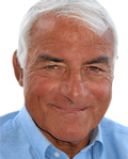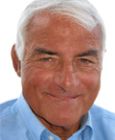Mindfulness
There's No Back Pain Surgery Can't Make Worse
Exercise and mindfulness better than knife or opiate
Posted January 3, 2015
Surgery is much less science based than the rest of medicine. It is almost impossible to subject to studies that are double blind and placebo controlled.
Surgical guidelines are therefore necessarily much more anecdotal than based on evidence.
Lots of elective surgery is probably unnecessary and back operations are the most notorious example. Back pain is an evitable and fairly ubiquitous complication of the human condition- arising from our incomplete postural adaptation to bipedal locomotion and the fact that we now live much longer than our backs are adapted for.
Back surgery is performed when the patient has a combination of pain and imaging pictures that show spinal abnormalities. The natural assumption is that what shows up in the pictures must be causing the pain.
The natural assumption is wrong. Lots of people have very messed up pictures but no pain. Lots of other people very pretty pictures but lots of pain. And as you get older, your spine shows progressively more imaging findings best considered normal aging, not disease.
And things have gotten even worse since Pharma began pushing prescription narcotics as a panacea for all pain. While helpful and safe for some, scrip opioids have become a major public health nightmare. The drugs are prescribed carelessly even though they are frequently addicting. Rremarkably scrip drugs now kill more people than car accidents or street drugs.
So back pain invites two dangers- unnecessarily invasive surgery and unnecessary life threatening addiction. Operating on the basis of pictures, not the person, often leads to no benefit or even harm.
http://www.ncbi.nlm.nih.gov/pubmed/25430861
Giving out powerful meds like candy can lead to addiction and death.
For years, I have been advising friends, relatives, and patients to avoid the knife and the pill and to depend instead on rehab, exercise, and distraction. Some listen. Many don't. Usually the reply is I don't understand how badly they feel. To reinforce the message, I have asked a present back sufferer to share her experience of how best to manage back suffering- what to do and what not to do.
Lynn writes:
"When I got sciatica, I went through one doctor after another and through one treatment after another- chiropractic, acupuncture, 2 rounds of not aggressive physical therapy, numerous MRI’s, trigger point shots of cortisone and lidocaine, and so forth. Surgery was recommended by several different surgeons.
The opinions were all over the place and I was getting increasingly confused and discouraged. The pain got worse and often I couldn't think of anything else.
My GP prescribed an opioid for me. I was concerned the pills could become addictive but she (like two other doctors) blythely and incorrectly told me this would not be a problem. I think doctors prescribe opioids so carelessly just because they want to get you out of the office and have been brainwashed by drug salesmen to minimize the risks.
I reluctantly tried the pills but luckily just didn’t like them. They made me constipated and kept me awake at night, actually causing nightmares.
Then I found a doctor who set me straight and changed everything. He bluntly told me that I was in a chronic cycle of pain and that the fear or anticipation of pain only exacerbates the pain. No pain pills in the world can prevent fear of pain. He told me that I needed to take a much more aggressive rehab and exercise approach to the sciatica problem.
Frankly, I was disappointed to discover that I was part of the problem. I wanted a quick medical or surgical solution to my problem, an easy fix. But there isn’t one.
Part of the remedy was to realize that I was part of the problem. Yes, in anticipating pain, I was causing more pain. When we anticipate pain, we actually tense up more, which leads to more anxiety, which leads to more tightened muscles and then more pain.
So how did I overcome my fear of and preoccupation with my pain? It isn’t easy, but it works. I practice mindfulness in additional to the very intensive physical therapy. The PT is a gradual process, but I am now lifting dead weights using my back with the goal of lifting 50 pounds. I am up to 40 pounds and feel confident I will make it the rest of the way. Of course there are a series of other weight exercises I do, all tough, and all exceeding my previously perceived capacity. And I do lots of stretching.
Mindfulness has also been a big help. The idea is to notice pain, but then come back to what you are doing at the moment. Right now I have some pain but I am concentrating instead on typing this note. Rather than focusing on my pain, I note it just like you might notice a bird flying by, but then go right back to what I am focusing on doing. It takes mental work, but it does work. Focusing on breathing techniques is also part of the mindfulness technique.
The book that helped me the most is called, “Back Sense, a Revolutionary Approach to Halting the Cycle of Chronic Back Pain,” Siegel, Urdang, and Johnson. When I was reading it two things occurred: 1) I thought I was reading a book just about me and my situation and 2) I realized that I can fix this. Believe it or not, the pain began to diminish almost immediately. Once I realized that I’m in charge, I felt better. Really, absolutely true.
Opioid drugs often only disguise the pain and are NOT the best remedy for fixing or alleviating it. They are only making the drug makers rich. Plain and simple. I would recommend not starting them at all and if you are on them slowly get off. It may be hard because of withdrawal and must be done under a doctors supervision, but do it. Skip a dose and take a walk."
Thanks so much, Lynn. Certainly, there are situations when back surgery is clearly necessary (sometimes urgently) and other situations where it is a last resort after all else has been tried. But the knife should be used sparingly and judiciously, only after all other possibilities have been considered and have failed.
Decisions about surgery are too important to be left exclusively in the hands of surgeons. They have inherent financial, intellectual, emotional, professional, ego and guild conflicts of interest that bias toward quick decisions and excessively aggressive treatment. Rehab doctors are more likely to be patent and disinterested.
Doctors who carelessly prescribe opioids are little better and just as dangerous as Cartel drug pushers. The unscrupulous pharma marketing of scrip narcotics has been heavily fined and labelled criminal, but continues because it is so profitable. The FDA has been asleep at the wheel. http://mobile.bloomberg.com/news/2014-10-20/purdue-says-kentucky-suit-o…
Patients beware, be informed, and follow Lynn's sound advice.




